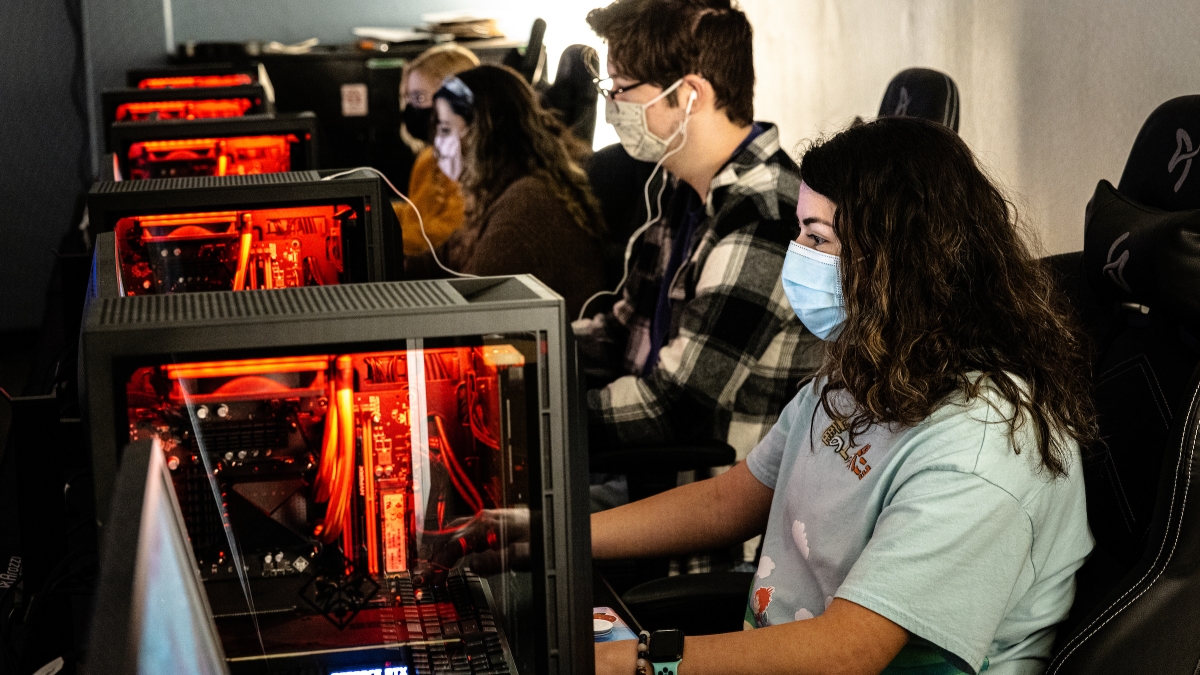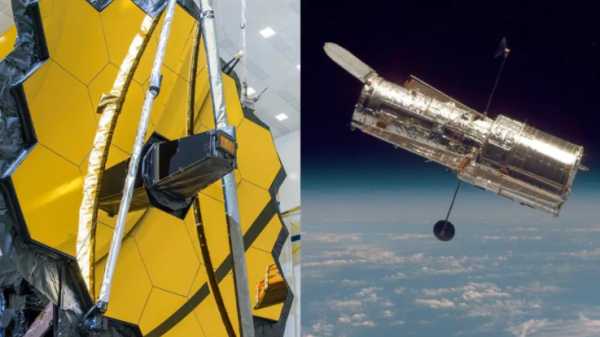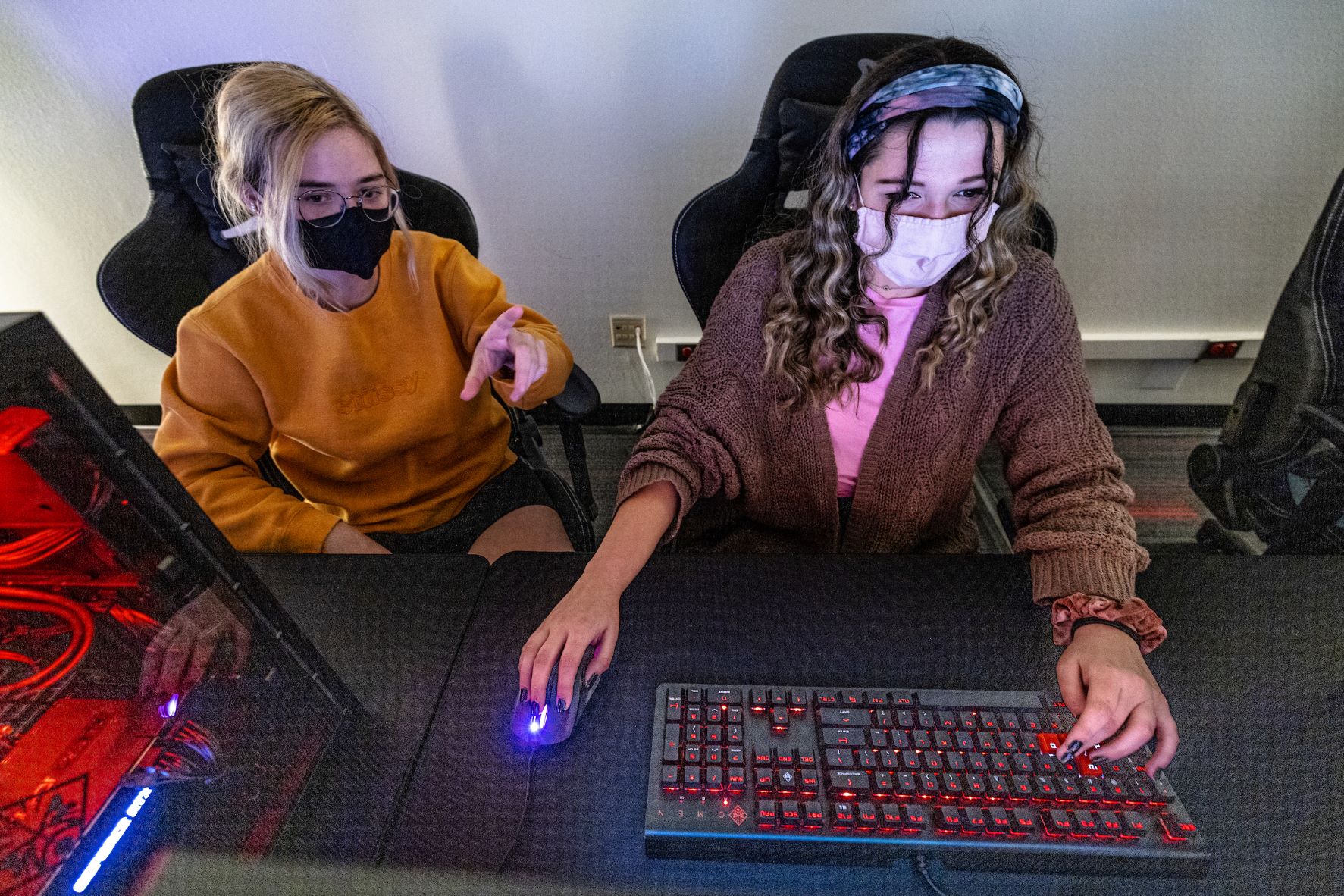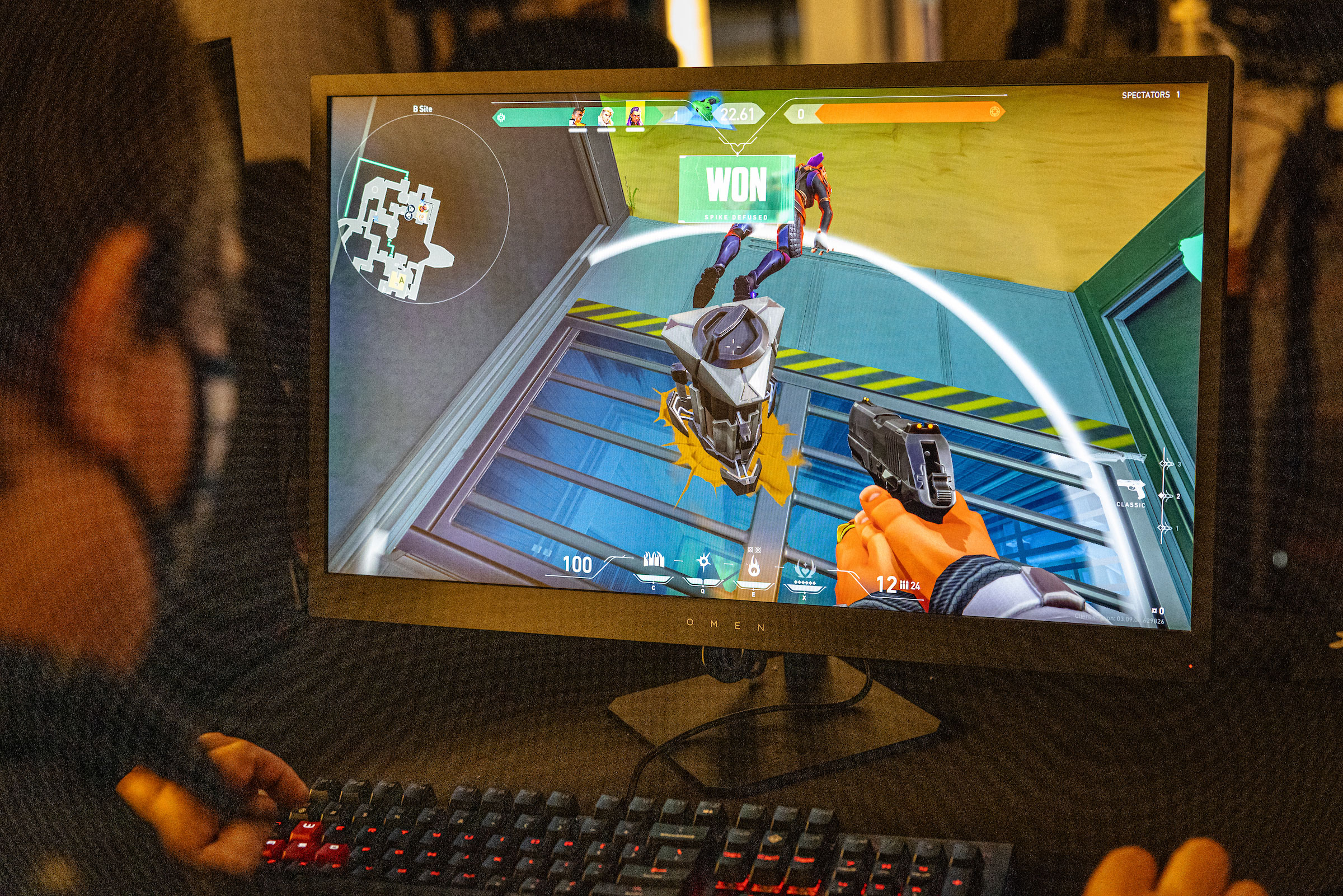Let the video games begin
New esports lounge opens to provide fun, community, career skills

Editor's note: The esports lounge will be open to all ASU students starting in the spring 2022 semester.
The chairs are soft and the screen is huge. The new esports lounge at Arizona State University is a fun place for students to gather and play video games.
But the lounge, which opened on the Tempe campus this month, is also a way for students to hone skills for a career path. The global video gaming industry is expected to be worth $221 billion in 2025, more than twice as much as in 2017.
The new esports lounge was developed by the School of Arts, Media and Engineering, a transdisciplinary initiative between the Herberger Institute for Design and the Arts and the Ira A. Fulton Schools of Engineering.
“We are responding to student need, and there is a much broader trend in the industry where esports is seen as a tool for recruiting students, and seeing esports as an entry into technology fields like game design and animation,” said Pavan Turaga, director of the School of Arts, Media and Engineering.
The new lounge, in the B-wing of Stauffer Hall, has 12 HP Omen gaming computers with special gaming chairs that provide back and neck support, plus an 82-inch screen. ASU’s Esports Association student group raised money for comfortable sofas and chairs for the lounge, which will arrive in a few months. Gaming companies donated peripherals like keyboards and headphones.
Students pay $5 an hour to play and get a discount when buying longer blocks of time. The money pays for the student workers who administer the space, which is open from 10 a.m. to 6 p.m. for any students taking Arts, Media and Engineering courses. Longer hours and access for more ASU students are planned for next semester, according to Connor Rawls, a research specialist and an alumnus of the School of Arts, Media and Engineering. He is supervising the lounge.
“It’s intended to be a community cultural hub centered around a love of video games and gaming and competition,” he said.
“One of our eventual goals is to have tournaments where people can come in and play as a group or with other people online and have an audience and commentators and really try to build out a student-driven events scene.”
First-year digital culture student Phaelen Bride (left) guides second-year digital culture student Sophie Armstrong as they play "Valorant" in the new esports lounge in Stauffer Hall on the Tempe campus. Photo by Charlie Leight/ASU News
Besides opening the esports lounge, the School of Arts, Media and Engineering also is adding a gaming concentration to its degree program.
“Esports presents an opportunity for players to have a career as an athlete, and that’s the public-facing celebrity athlete pathway,” Turaga said.
“But in addition, there’s a whole support industry — how you promote esports, how you create content; experience and design.
“There is a huge potential for STEM careers for people that don’t have a STEM background. You can be an arts major and still be a functioning engineer, and we want to be that school that creates on-ramps to these technical careers through video games.”
Phaelen Bride, a first-year student majoring in digital culture, said she plays video games just about every day and hopes to have a career as a video game developer.
She says the new lounge is important for students.
“It will definitely help students destress, and any students who want to do esports professionally can build up their skills and make a career of it,” she said.
“It’s a space for students to just be themselves, and it’s very welcoming.”
The lounge currently offers eight games, and Bride says her favorite is "Valorant."
The competitive video game "Valorant" is one of the games available in the new esports lounge in Stauffer Hall on the Tempe campus. Photo by Charlie Leight/ASU News
“One of the games I want to develop would be a competitive game, and I would love for people to play it like a sport, like 'Valorant,'” she said.
Turaga, who also is an associate professor, said that students asked for the lounge in order to create a community.
“Gaming is seen as not being academically mainstream, but in our department, there is a serious academic leveraging around gaming.”
Top photo: (From left) Phaelen Bride, Sophie Armstrong, Jackson Ourada and Mia Ramos play the video game "Valorant" in the esports lounge in Stouffer Hall on the Tempe campus on Nov. 12. Photo by Charlie Leight/ASU News
More Science and technology

ASU receives 3 awards for research critical to national security
Three researchers in the Ira A. Fulton Schools of Engineering at Arizona State University have received grant awards under the Defense Established Program to Stimulate Competitive Research, or…

Celebrating 34 years of space discovery with NASA
This year, NASA's Hubble Space Telescope (HST) is celebrating its 34th anniversary of the world's first space-based optical telescope, which paved the scientific pathway for NASA's James Webb Space…

Making magic happen: Engineering and designing theme parks
The themed entertainment industry is widespread and diverse, encompassing everything from theme parks to aquariums, zoos, water parks, museums and more. The Theme Park Engineering and Design…

